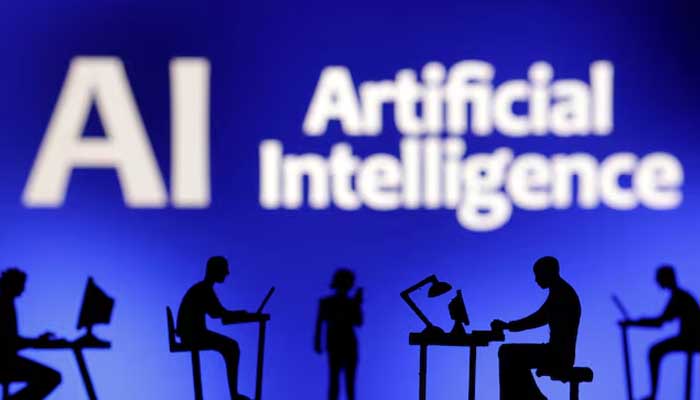AI in action
These AI tools are great as they suggest code snippets, automate debugging, etc
January 16, 2025

Artificial intelligence has grown to be at the forefront in the previous years and is expected to take centre stage in 2025 and beyond. It is revolutionising industries, creativity, and productivity in the world. The AI generative agents are mainly powered by Artificial Intelligence (AI) models and Machine Learning (ML) algorithms to generate human-like responses and create content. Therefore, boosting customer engagement without the need of human intervention.
The generative agents provide reliable tools to meet specific user needs. Some great examples would be ChatGPT and Bard AI which are crucial in creating essays, business reports, emails, and providing reliable customer support solutions. There are also image generators like DALL-E 3 and Midjourney which are crucial to produce creative visuals based on given text prompts.
Another great example would be Synthesia which uses AI-driven avatars to create multilingual content that can be used for education, marketing, training, etc. Programmers, developers, and coders can utilise GitHub Copilot and TabNine to simplify software development. These AI tools are great as they suggest code snippets, automate debugging, etc.
You can also utilise the AI audio tools like Murf.ai and Descript which are indispensable when it comes to creating voiceovers, podcasts, and audiobooks. Another epic AI tool is Canva Magic Design which uses AI to produce custom graphics that are crucial for any business, brand, or company that wants to engage their customers in various graphical ways. Other ideal data analytics AI tools that make work easier include TableauGPT and Power BI copilot which are crucial for empowering analysts to derive actionable insights, automation visualisation creation, and predictive models.
The generative agents provide great opportunities across various industries. For starters, in the healthcare sector, AI generative agents will help in diagnostics, planning of patient treatment, and care management. It will be easier to identify patterns that indicate health risks since AI algorithms can diagnose certain conditions with the utmost accuracy to reduce the chances of misdiagnoses. This can help health practitioners have easier work when trying to diagnose a certain ailment without giving the wrong treatment.
However, it will be crucial for the AI agents to be fed with correct information for more efficiency. The generative agents are also useful in the education sector since they can act as personalised tutors, create tailoured lesson plans, and assessment of the students to increase the inclusivity of each of the students through adaptive learning.
In financial institutions, they can be used to detect fraud, provide great customer service, and other financial functions. The integration of AI generative agents will reduce losses in financial institutions and also boost security. All these achievements are well stipulated in the McKinsey report which foresees that the use of AI will help increase operational efficiency by 30% and, therefore, better output.
The creative and entertainment sectors can also utilise generative AI agents to create scripts, music, animations, and virtual environments. In marketing and advertising, generative agents can be used to craft personalised campaigns for the right engagement. Businesses can also benefit from repetitive tasks automation, generation of reports, design, and other developments. With AI generative agents we also foresee the creation of new job roles such as AI trainers, system integrators, and ethical auditors.
In the customer service sector, AI generative agents will help boost customer engagement to ensure queries are answered on time with less time wastage. Ideally, operational costs will reduce while customer satisfaction rates will increase due to the great engagement being provided. Additionally, in the hospitality business, they will play a huge role in enhancing communication because they are multilingual and will always be accessible to guests and offer a better service to ensure everyone’s needs are met.
In the e-commerce sector, AI generative agents can be used to place orders, track, and provide shipping updates while facilitating image-based searches. It will also be easy to follow up on cart abandonment and product reviews to ensure proper engagement with the customer. Also, the AI generative agents will grow to be used to build lead lists, send relevant communication, and qualify leads with the right strategies. Additionally, in the retail industry, retailers can use algorithms to analyse customer behaviour to ensure the right product recommendations are made for increased purchases.
However, on the downside, the integration of AI into existing systems can take longer if companies are unable to pinpoint applications for their various tasks. Also, the costs associated with developing and deploying AI technologies may escalate if there are not enough computing or energy resources. Other challenges include: misinformation, plagiarism, bias in AI outputs, and potential job displacements
Ideally, there are some challenges in AI agent development such as data bias in which the systems learn from biased data or amplify existing prejudices. Therefore, developers ought to audit training data and use techniques to reduce biases. Developers will also need to create ethical guidelines and governance frameworks. Also, the right security measures need to be put in place to reduce attacks that can manipulate the AI generative agents’ behaviour or steal sensitive data. This can be handled through encryption, access control, and security testing. There will be a need for collaborative efforts between technologists, businesses, and policymakers.
According to ZD Net, possibly by 2028, 15% of day-to-day work will be through AI agents. AI generative agents are great for task automation, resource optimisation, provision of 24/7 omnichannel support, personalised service, effective issue resolution fraud detection, optimising inventory levels, tailoured real-time feedback, and content suggestions. It can be utilised in customer service, e-commerce, sales and marketing, hospitality, educational, health, and other institutions.
AI generative agents will be greatly used in 2025 and in the years to come. Therefore, we ought to accept its existence and foreseen productive changes. AI generative agents are here to stay.
The writer is the author of ‘Digital Pakistan’ and holds the position of chief digital officer and director at the Centre for Information and Communication Technology at IoBM. He tweets @imranbatada and can be reached at: [email protected]
Disclaimer: The viewpoints expressed in this piece are the writer's own and don't necessarily reflect Geo.tv's editorial policy.
Originally published in The News









